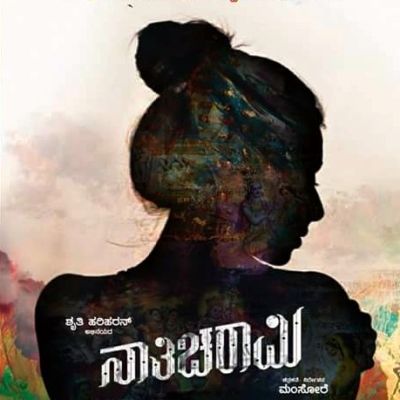class
Could it be that other changes in our lives make it even more difficult to conceive the desire of the ‘other’, specifically of those with whom we don’t share as many conversations, with whom we’ll soon, I expect, lose entirely the ability to speak?
एक मानवशास्त्रीय दृष्टिकोण से बॉलीवुड की फ़िल्मों में वर्ग और जेंडर के मुद्दों के चित्रण पर ग़ौर करना केथ्रीजी जैसी फ़िल्मों पर नई आलोचनाओं को बढ़ावा देता है।
Companions take many forms. Using the word very loosely here, a companion is anyone the self is connected to, anywhere, at any point in time, from a family member, to a stranger on a train.
In theory, the concept of the app is a great one – it provides women, queer people, and people belonging to oppressed castes the tea-stall, cigarette-shop type of public spaces for conversation that are available to upper-caste cis het men. The relative anonymity acts like a safe cover, and the app affords a certain autonomy and agency to marginalised people to regulate the kind of conversation that goes on in rooms moderated by them.
This article explores how women are constructed as a ‘space’ manufactured by men to seek comfort, but void of having any active agency or participation in that space itself. I seek to bring this out in this article by drawing a parallel between the nineteenth century ‘Bharat Mata’ (Mother India) and the depiction of the twenty-first century ‘heroine’ in Bollywood movies.
100 issues, 8 years! Thank you, dear readers and contributors! As we planned for this issue to put on our…
In this write up, we’d like to share a sense of what emerges from a compilation of these responses. This is based on the thoughts and feelings that come through for those of us here at In Plainspeak who have had the joy of reading the original responses as they came in to us. (Some of the quotations that follow have been slightly edited for flow and to help connect themes.) We know that most things in the realm of art, information and ideas lend themselves to a wide range of inferences and insights depending on the individuals making the inferences.
Nathicharami takes sexuality and sexual desire away from upper-class, Gucci-clad women and makes its viewers acknowledge its existence in the lives of women (middle-class wives and widows, in the case of this film) who are invisibilised, both in the society they live in and as subjects of popular content.
The desire for intimacy might rob one of the intimacy that one shares with oneself and thus, being with the beloved can leave one feeling even lonelier because of the continuing struggle for validation and comfort.
By and large, society expects a woman to marry. Often people in one’s circle judge a woman if she doesn’t marry, inquiring about what could be wrong but most never assuming that it could be out of choice
When the pressure started to mount on Surekha, from all corners, to get married, she thought of reconsidering Kishore’s proposal…
At present Neel[1] and I live-together, part-time. I write part-time because I stay alternately with him and with my sister…
In our mid-month issue, Amit Timilsina writes about the role class plays in the decisions that young people make, and what he himself, as a young person and a youth leader, had to do to gain access to resources and to professional acceptance.















